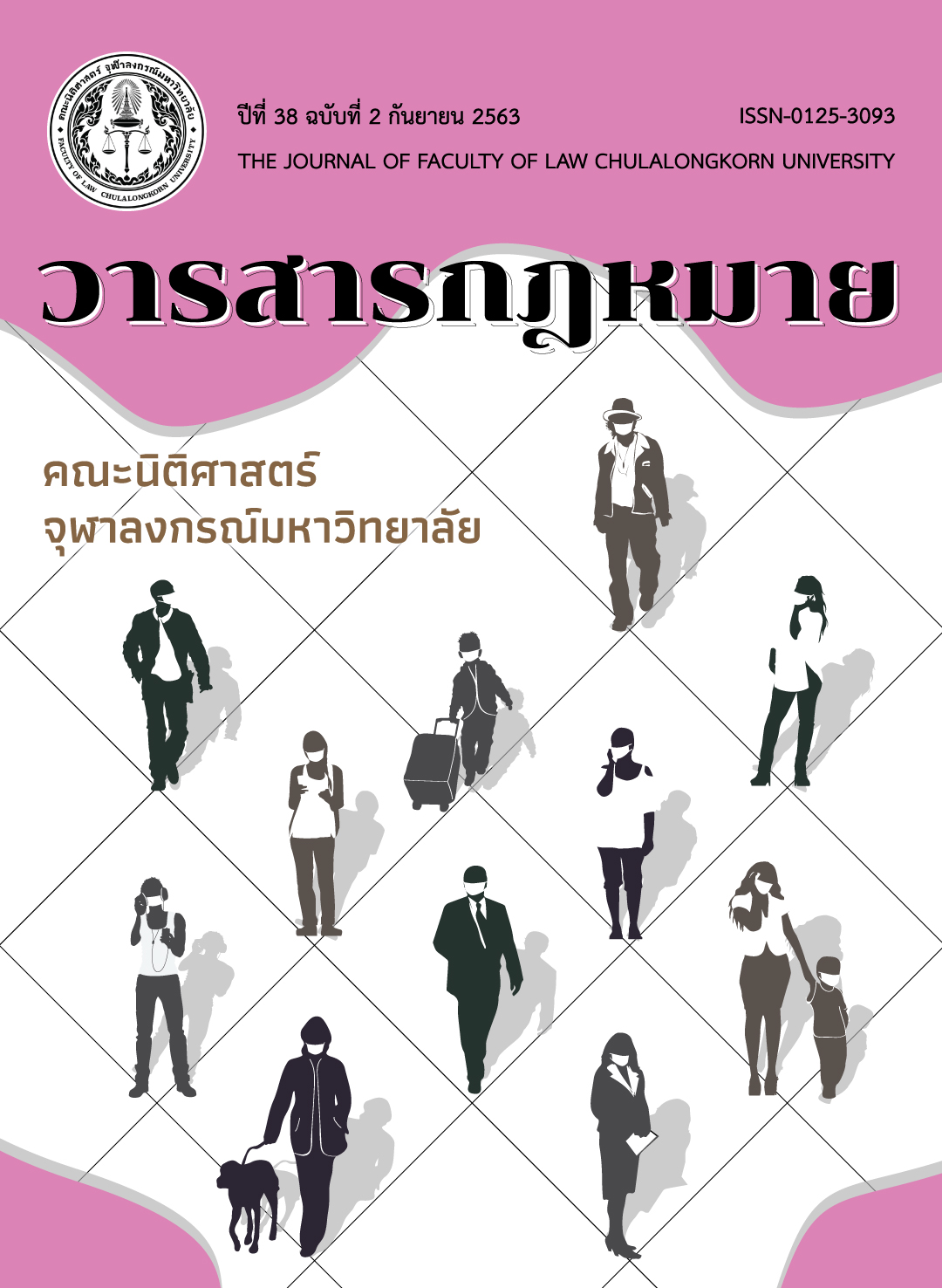Airbnb: Room sharing laws in Thailand
Main Article Content
Abstract
Airbnb is a digital business and a sharing economy with a booking platform that allows people to stay in millions of accommodations around the world. This 10-year old fledgling business not only added stay options to satisfied guests, but also lets room owners rent out their space to generate income. Many Airbnb listers became successful listing their places on the platform compared to more traditional ways of renting out their properties. Many issues followed, one of which is a claim that Airbnb is illegal in many countries. A large number of countries issued laws or are in the process of enacting laws to supervise Airbnb business. Meanwhile, many countries still do not have ideas to enact laws to supervise this business. Thailand is one of the countries with no such laws. Therefore, this article will address issues and Thai laws applicable to Airbnb as well as foreign laws supervising Airbnb.
After the study, the authors suggest that Thailand should have a law that directly applies to Airbnb. Related agencies such as the Ministry of Social Development and Human Security, the Ministry of Tourism and Sports and the Ministry of Interior by the Department of Local Administration should be responsible for supervising the business. The law should include definitions of accommodations which are subject to the law. In addition, the law should stipulate measures on environmental problems, conversation of ancient sites and ancient objects, safety measures, and a limitation of stays. In case of condominiums, resolutions and policies of each place should be respected. Local and government taxes should be paid accordingly.
Article Details
The copyright in this website and the material on this website (including without limitation the text, computer code, artwork, photographs, images, music, audio material, video material and audio-visual material on this website) is owned by Chulalongkorn University Law Journal and its licensors.
1. Chulalongkorn University Law Journal grants to you a worldwide non-exclusive royalty-free revocable license to:
- view this website and the material on this website on a computer or mobile device via a web browser;
- copy and store this website and the material on this website in your web browser cache memory; and
- print pages from this website for your use.
- All articles published by Chulalongkorn University Law Journal are licensed under the Creative Commons Attribution 4.0 International License. This permits anyone to copy, redistribute, remix, transmit and adapt the work provided the original work and source is appropriately cited.
2. Chulalongkorn University Law Journal does not grant you any other rights in relation to this website or the material on this website. In other words, all other rights are reserved. For the avoidance of doubt, you must not adapt, edit, change, transform, publish, republish, distribute, redistribute, broadcast, rebroadcast or show or play in public this website or the material on this website (in any form or media) without appropriately and conspicuously citing the original work and source or Chulalongkorn University Law Journal prior written permission.
3. You may request permission to use the copyright materials on this website by writing to journal@law.chula.ac.th.
4. Chulalongkorn University Law Journal takes the protection of its copyright very seriously. If Chulalongkorn University Law Journal discovers that you have used its copyright materials in contravention of the license above, Chulalongkorn University Law Journal may bring legal proceedings against you seeking monetary damages and an injunction to stop you using those materials. You could also be ordered to pay legal costs.
If you become aware of any use of Chulalongkorn University Law Journal's copyright materials that contravenes or may contravene the license above or any material on the website that you believe infringes your or any other person's copyright, please report this by email to journal@law.chula.ac.th.
References
กฎกระทรวง ฉบับที่ 55 (พ.ศ. 2543) ออกตามความตามพระราชบัญญัติควบคุมอาคาร พ.ศ. 2522
ประกาศกรมการท่องเที่ยว เรื่อง กำหนดมาตรฐานบริการท่องเที่ยวมาตรฐานโฮมสเตย์ไทย พ.ศ. 2554
พระราชบัญญัติคนเข้าเมือง พ.ศ. 2522
พระราชบัญญัติควบคุมอาคาร พ.ศ. 2522
พระราชบัญญัติโรงแรม พ.ศ. 2547
พระราชบัญญัติอาคารชุด พ.ศ. 2522


